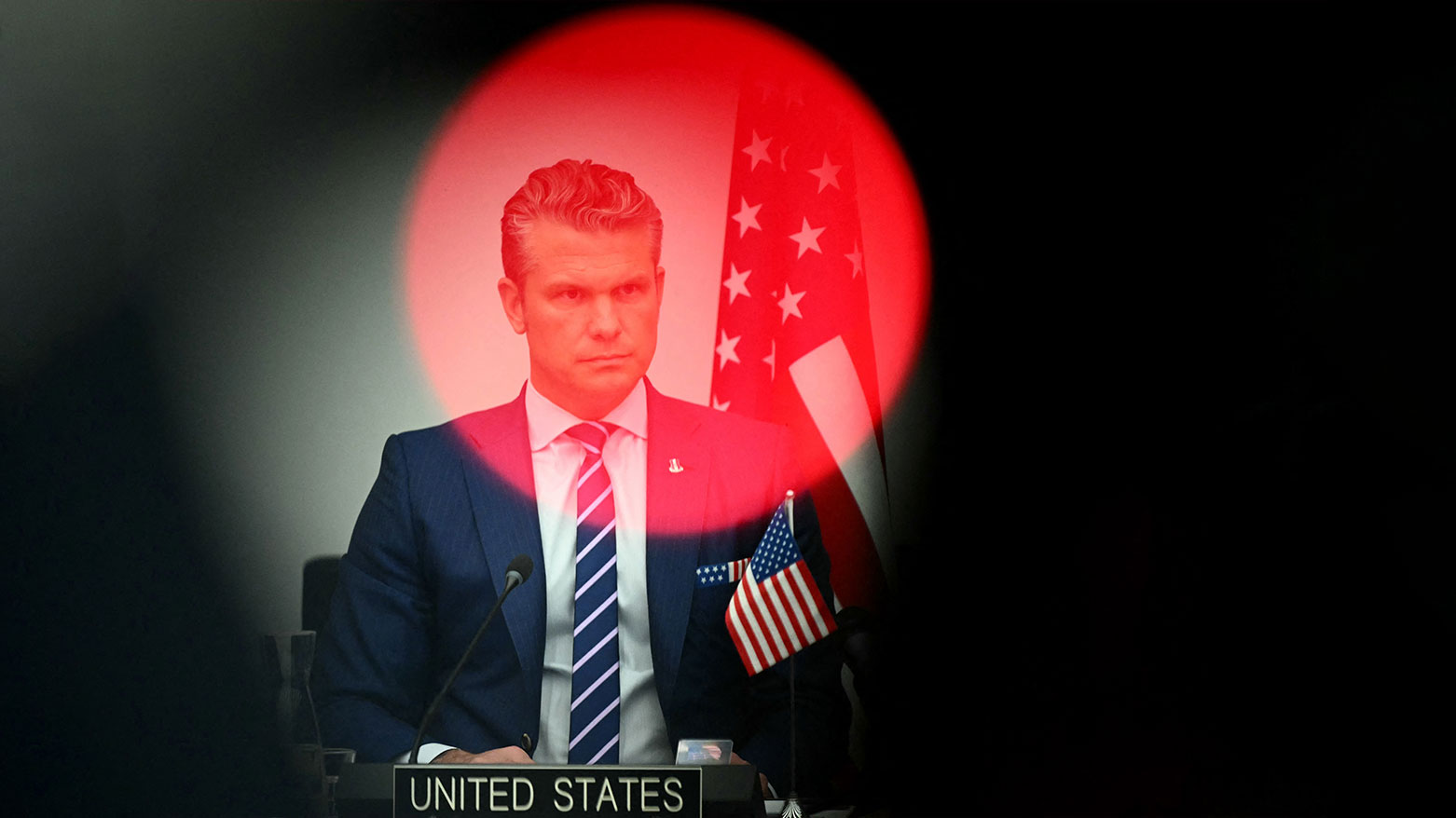Hegseth Warns Moscow: “U.S. Will Impose Costs” if Ukraine War Fails to End
U.S. Defense Secretary Hegseth warned Russia will face "costs" if the Ukraine war continues, urging NATO allies to increase weapons funding for Kyiv. The appeal comes as Western military aid has declined sharply in recent months. Source: Pentagon statement at NATO meeting.

ERBIL (Kurdistan24) – U.S. Defense Secretary Pete Hegseth issued a stern warning to Moscow on Wednesday, declaring that the United States and its allies “will impose costs on Russia for its continued aggression” if the war in Ukraine does not end. His remarks, delivered at NATO headquarters during a Ukraine Defense Contact Group meeting, came as Washington considers a new request from Kyiv for long-range Tomahawk missiles.
“If we must take this step, the U.S. War Department stands ready to do our part in ways that only the United States can do,” Hegseth said, stopping short of elaborating on what those measures might entail.
In his address, Hegseth urged both Moscow and Kyiv to embrace a negotiated peace under the Trump administration’s push for an end to hostilities, framing the war’s conclusion as both a moral imperative and a geopolitical necessity.
“Now is the time to end this tragic war, stop the needless bloodshed, and come to the peace table,” he declared. “This is not a war that started on President Trump’s watch, but it will end on his watch.”
The defense chief’s appeal came as Western military aid to Ukraine has sharply declined. The Kiel Institute for the World Economy reported that average monthly aid dropped by 43% in July and August compared to the first half of the year. Kyiv, now entering another winter of attrition against a Russian military holding about 20% of Ukrainian territory, remains heavily reliant on U.S. weaponry.
At NATO headquarters, Hegseth called on America’s European allies to “turn words into action” by contributing more to the Prioritized Ukraine Requirements List (PURL) program — the mechanism that replaced direct U.S. arms donations with a system requiring allied nations to purchase American weapons for Ukrainian use.
“You get peace when you are strong—not when you use strong words or wag your fingers,” he told reporters. “You get it when you have strong and real capabilities that adversaries respect.”
“Our expectation today is that more countries donate even more, that they purchase even more to provide for Ukraine, to bring that conflict to a peaceful conclusion,” Hegseth added.
NATO Secretary-General Mark Rutte confirmed that approximately $2 billion had been pledged through PURL so far, though this remains below the $3.5 billion requested by Ukrainian President Volodymyr Zelenskiy by October.
While smaller nations such as Sweden, Finland, and Estonia announced new pledges on Wednesday, larger allies including France and Britain have not yet made additional commitments, despite Washington’s appeals.
“Now is the time for all NATO countries to turn words into action in the form of PURL investments. All countries around this table—no free riders,” Hegseth urged.
The U.S. defense chief’s remarks reflect a growing impatience in Washington as global fatigue over the war deepens. President Donald Trump’s administration has positioned itself as determined to bring the war to a negotiated end, even as it continues to support Ukraine’s self-defense capabilities through allied funding mechanisms.
As Hegseth rallied allies in Brussels, geopolitical ripples of the war reached New Delhi, where India reaffirmed its commitment to prioritize national energy needs following Trump’s recent claim that India had agreed to stop purchasing Russian oil.
“It has been our consistent priority to safeguard the interests of the Indian consumer in a volatile energy scenario,” Indian Foreign Ministry spokesman Randhir Jaiswal said in a statement Thursday. “Our import policies are guided entirely by this objective.”
New Delhi neither confirmed nor denied any shift in its oil policy toward Moscow, maintaining that its decisions would remain driven by economic pragmatism and domestic necessity.
“Ensuring stable energy prices and secured supplies have been the twin goals of our energy policy,” Jaiswal added. “This includes broad-basing our energy sourcing and diversifying as appropriate to meet market conditions.”
India’s stance comes amid heightened U.S.-India trade tensions. In August, President Trump raised tariffs on Indian exports to 50%, accusing New Delhi of “fueling Russia’s war in Ukraine” through its purchases of discounted crude oil.
Nevertheless, Indian Prime Minister Narendra Modi has consistently defended the country’s energy relationship with Russia, describing it as essential to India’s economic stability. “Where the U.S. is concerned, we have for many years sought to expand our energy procurement,” Jaiswal said. “This has steadily progressed in the last decade.”
India, which imports over 85% of its crude oil, has dramatically increased its intake of discounted Russian barrels since 2022, capitalizing on market dislocations caused by Western sanctions.
“The current administration has shown interest in deepening energy cooperation with India. Discussions are ongoing,” Jaiswal confirmed.
The Trump administration’s latest diplomatic moves underscore its dual-track approach—pressuring adversaries while leveraging allies to bear greater financial responsibility for U.S.-led initiatives.
By coupling defense warnings to Moscow with economic pressure on major energy consumers like India, Washington seeks to realign both security and trade dynamics under what officials call the “peace through strength” doctrine.
For Ukraine, however, the message remains clear: the U.S. will continue to demand results from allies and adversaries alike—while insisting that the war, which began before Trump’s presidency, “will end on his watch.”